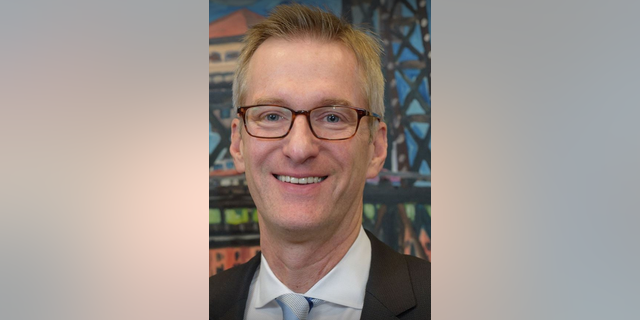House Speaker Nancy Pelosi will meet Friday with far-left Rep. Alexandria Ocasio-Cortez in
an effort to stop the recent infighting between the Democratic Party's
progressive and moderate blocs in the lower chamber of Congress.
The progressives have leveled almost constant criticism at the moderates, accusing them of helping the Trump administration, whether directly or indirectly. The moderates, in turn, have accused the far left of pushing for abrupt change that could place the party's current House majority at risk.
Pelosi, 79, a Californian who has served in the House for more than 30 years, told USA Today on Thursday that she’s “looking forward to” meeting with Ocasio-Cortez to air out the differences.
The 29-year-old freshman congresswoman from New York, meanwhile, tried to downplay their meeting.
“It’s nothing too climactic,” Ocasio-Cortez said. “Just trying to make sure we have an open line of communication and get on the same page.”
The schism began with Ocasio-Cortez’s vote against a $4.6 billion border funding – aimed at improving the conditions of migrants – that the majority of her party approved.
Other freshman Democrats joined her in voting against, including Reps. Ilhan Omar, D-Minn., Rashida Tlaib D-Mich., and Ayanna Pressley, D-Mass.
The vote clearly irked Pelosi, who then told the New York Times that “these people have their public whatever and their Twitter world,” adding “They’re four people and that’s how many votes they got.”
The official House Democratic Caucus Twitter account, meanwhile, slammed Ocasio-Cortez’s chief of staff Saikat Chakrabarti, who criticized Rep. Sharice Davids, D-Kansas, for her votes on issues to do with the migrant crisis at the border.
“Who is this guy and why is he explicitly singling out a Native American woman of color?” the now-deleted tweet read. “Her name is Congresswoman Davids, not Sharice.”
“She is a phenomenal new member who flipped a red seat blue,” it added. “Keep Her Name Out Of Your Mouth.”
The meeting between Pelosi and Ocasio-Cortez also comes as the House will have to vote on a resolution to raise the debt limit until July 31, 2021.
Treasury Secretary Steven Mnuchin pressured the House to approve the resolution -- otherwise, the government may go over its borrowing limit since lawmakers will be leaving for the August recess.
According to the Wall Street Journal, while progressives didn’t come out against the resolution, Ocasio-Cortez went to Twitter to raise concerns about the deal.
“Notice how whenever we pursue large spending increases + tax cuts for corporations, contractors & the connected, it’s treated as business as usual,” she said.
“But the moment we consider investing similar in working class people (ex tuition-free college) they cry out it’s ‘unrealistic.’”
The progressives have leveled almost constant criticism at the moderates, accusing them of helping the Trump administration, whether directly or indirectly. The moderates, in turn, have accused the far left of pushing for abrupt change that could place the party's current House majority at risk.
Pelosi, 79, a Californian who has served in the House for more than 30 years, told USA Today on Thursday that she’s “looking forward to” meeting with Ocasio-Cortez to air out the differences.
The 29-year-old freshman congresswoman from New York, meanwhile, tried to downplay their meeting.
“It’s nothing too climactic,” Ocasio-Cortez said. “Just trying to make sure we have an open line of communication and get on the same page.”
The schism began with Ocasio-Cortez’s vote against a $4.6 billion border funding – aimed at improving the conditions of migrants – that the majority of her party approved.
Other freshman Democrats joined her in voting against, including Reps. Ilhan Omar, D-Minn., Rashida Tlaib D-Mich., and Ayanna Pressley, D-Mass.
The vote clearly irked Pelosi, who then told the New York Times that “these people have their public whatever and their Twitter world,” adding “They’re four people and that’s how many votes they got.”
“... these people have their public whatever and their Twitter world ... They’re four people and that’s how many votes they got.”The comments further infuriated Ocasio-Cortez, who suggested that Pelosi is purposely targeting the progressive freshman group – dubbed “the Squad” – that is made up of women of color. The New York Democrat later had to do damage control and say Pelosi is “absolutely not” racist.
— House Speaker Nancy Pelosi
The official House Democratic Caucus Twitter account, meanwhile, slammed Ocasio-Cortez’s chief of staff Saikat Chakrabarti, who criticized Rep. Sharice Davids, D-Kansas, for her votes on issues to do with the migrant crisis at the border.
“Who is this guy and why is he explicitly singling out a Native American woman of color?” the now-deleted tweet read. “Her name is Congresswoman Davids, not Sharice.”
“She is a phenomenal new member who flipped a red seat blue,” it added. “Keep Her Name Out Of Your Mouth.”
The meeting between Pelosi and Ocasio-Cortez also comes as the House will have to vote on a resolution to raise the debt limit until July 31, 2021.
Treasury Secretary Steven Mnuchin pressured the House to approve the resolution -- otherwise, the government may go over its borrowing limit since lawmakers will be leaving for the August recess.
According to the Wall Street Journal, while progressives didn’t come out against the resolution, Ocasio-Cortez went to Twitter to raise concerns about the deal.
“Notice how whenever we pursue large spending increases + tax cuts for corporations, contractors & the connected, it’s treated as business as usual,” she said.
“But the moment we consider investing similar in working class people (ex tuition-free college) they cry out it’s ‘unrealistic.’”


















